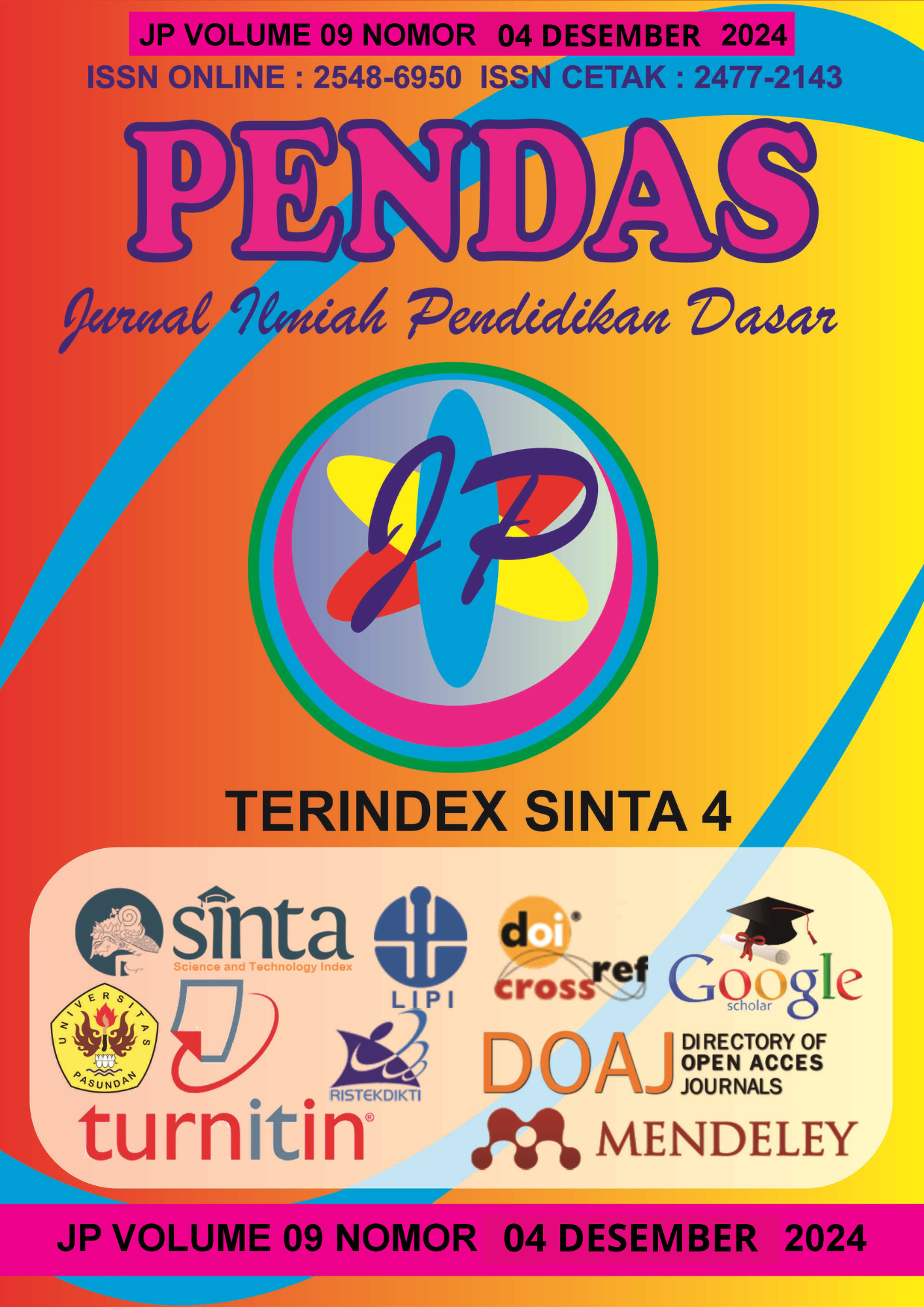PELAKSANAAN ASESMEN DIAGNOSTIK DI GUGUS V KINTAMANI DALAM PEMBELAJARAN IPS
DOI:
https://doi.org/10.23969/jp.v9i04.18655Keywords:
diagnostic assesments, IPSAbstract
The purpose of this study was to determine; teacher understanding, to determine whether teachers are able to compile, and whether teachers implement diagnostic assessments in grade IV of elementary school in social studies subjects. This research method is descriptive qualitative. Data collection techniques are through interviews, document studies, and observations. The subjects of the study were teachers, principals, and students at elementary schools in Kintamani. Based on data analysis of teacher understanding from 9 teachers, there were 5 teachers who understood very well, 3 teachers understood, and 1 teacher did not understand well. The number of principals who understood was 5 people, 2 principals understood, and 2 principals understood quite well. The number of teachers who always compiled diagnostic assessments and implemented diagnostic assessments was 5 people, teachers who sometimes implemented diagnostic assessments were 3 people, and the number of teachers who never conducted diagnostic assessments was 1 person. Of the 10 students who obtained very good cognitive assessment results, 5 people, 2 students obtained good, 1 student obtained a fairly good category, and 2 students were not good. Students who had very good physical conditions were 10 students. In terms of mental condition, there are 8 students in the very good category and 2 students in the quite good category. In terms of learning motivation, there are 5 students in the very good category, 3 students in the less good category and 2 students in the less good category have less good motivation. The conclusion from the results of this study is that teachers who do not understand and do not make diagnostic assessments are teachers who do not follow the training properly and do not know the technology and those who have carried out diagnostic assessments are teachers who have followed the training and are able to use technology.
Downloads
References
Akbar, M. A., Ariska, R. N., & Pepayosa, E. (2024). Asesmen Diagnostik Non Kognitif Gaya Belajar Siswa Kelas XI di SMAN 1 Pangkalan Susu. Jurnal Ilmiah Profesi Pendidikan, 9(2), 1396–1401.
Alfarisi, M. (2024). Analisis Hasil Asesmen Diagnostiksebagai Dasar Pelaksanaan Pembelajaran Berdiferensiasi Di Sekolah Dasar. LAMBDA : Jurnal Ilmiah Pendidikan MIPA Dan Aplikasinya, 4(1), 36–43. https://doi.org/10.58218/lambda.v4i1.848
Azis, A. C. K., & Lubis, S. K. (2023). Asesmen Diagnostik Sebagai Penilaian Pembelajaran Dalam Kurikulum Merdeka Di Sekolah Dasar. Pena Anda: Jurnal Pendidikan Sekolah Dasar, 1(2), 20–29. https://doi.org/10.33830/penaanda.v1i2.6202
Firmanzah, D., & Sudibyo, E. (2021). Implementasi Asesmen Diagnostik Dalam Pembelajaran Ipa Pada Masa Pandemi Covid-19 Di Smp/Mts Wilayah Menganti, Gresik. Pensa E-Jurnal : Pendidikan Sains, 9(2), 165–170. https://ejournal.unesa.ac.id/index.php/pensa/index
Laulita, U., Marzoan, & Rahayu, F. (2022). Analisis Kesiapan Guru Dalam Mengimplementasikan Asesmen Diagnostik Pada Kurikulum Merdeka. JPIn: Jurnal Pendidik IndonesiaJurnal Pendidik Indonesia, 5(2), 63–69. https://jurnal.intancendekia.org/index.php/JPIn/article/view/348
Maut, A. O. W. (2022). Pentingnya Asesmen Diagnostik dalam Implementasi Kurikulum Merdeka (IKM) di SD Negeri Tongkuno Kecamatan Tongkuno Kabupatem Muna Sulawesi Tenggara. Jurnal Pendidikan Masyarakat Dan Pengabdian, 02(4), 1305–1312. http://ejurnal.pps.ung.ac.id/index.php/dikmas%0AAsesmen
Motulo, S. J., Mokosuli, Y. S., & Kamagi, D. W. (2024). Pengembangan Asesmen Diagnostik Berbasis Media Google Form di Man Model Manado. Soscied, 7(1), 2. https://jurnal.poltekstpaul.ac.id/index.php/jsoscied/article/view/768
Putri, E. S., & Rinaningsih, R. (2021). Review: Tes Diagnostik Sebagai Tes Formatif Dalam Pembelajaran Kimia. UNESA Journal of Chemical Education, 10(1), 20–27. https://doi.org/10.26740/ujced.v10n1.p20-27
Sayekti, S. P. (2022). Systematic Literature Review: Pengembangan Asesmen Pembelajaran Kurikulum Merdeka Belajar Tingkat Sekolah Dasar. Prosiding Seminar Nasional Pendidikan Guru Sekolah Dasar, 2(1), 22–28. https://doi.org/10.25134/prosidingsemnaspgsd.v2i1.21
Susilawati, W. O., Friska, S. Y., & Rohmawanti. (2023). Pengembangan Asesmen Diagnostik Mata Pelakaran Pancasila Kleas IV Dalam Kurikulum Merdeka di Sekolah Dasar. Didaktik : Jurnal Ilmiah PGSD FKIP Universitas Mandir, 09(2), 3131. https://journal.stkipsubang.ac.id/index.php/didaktik/article/view/1183
Downloads
Published
Issue
Section
License
Copyright (c) 2024 Pendas : Jurnal Ilmiah Pendidikan Dasar

This work is licensed under a Creative Commons Attribution 4.0 International License.














































